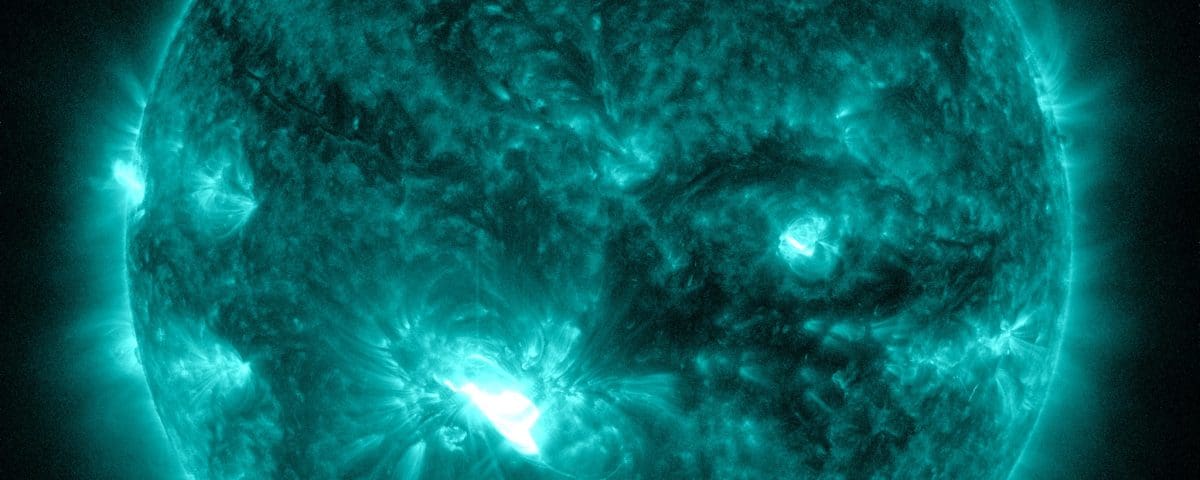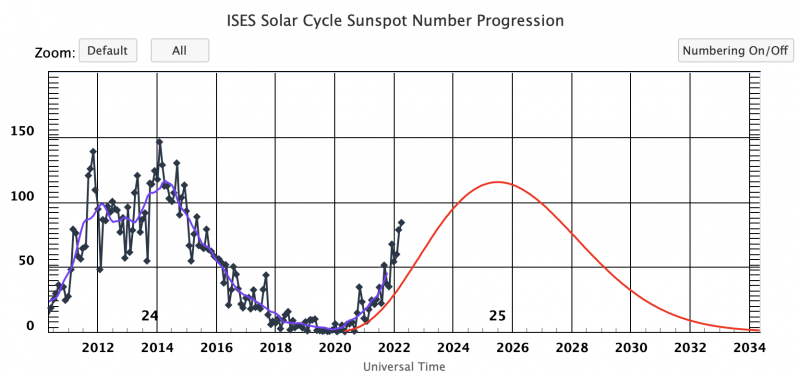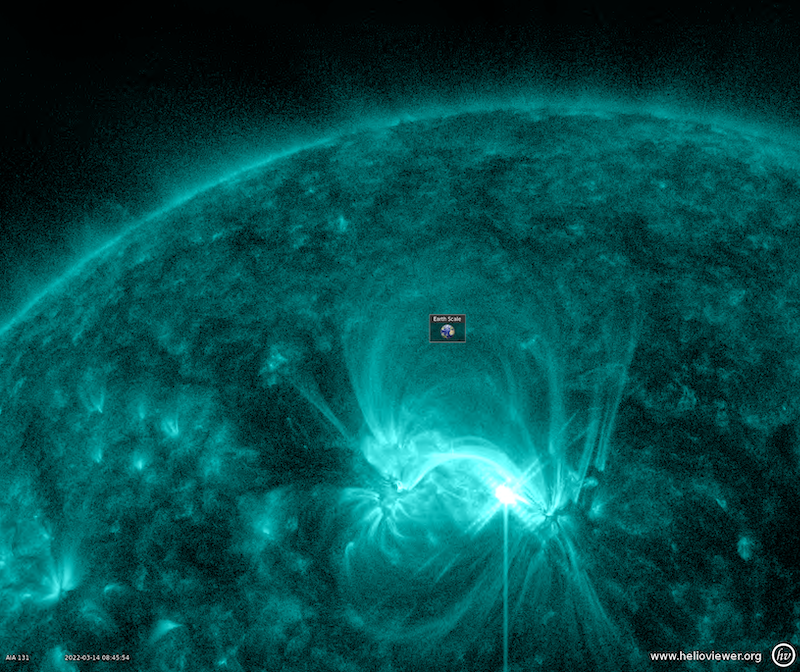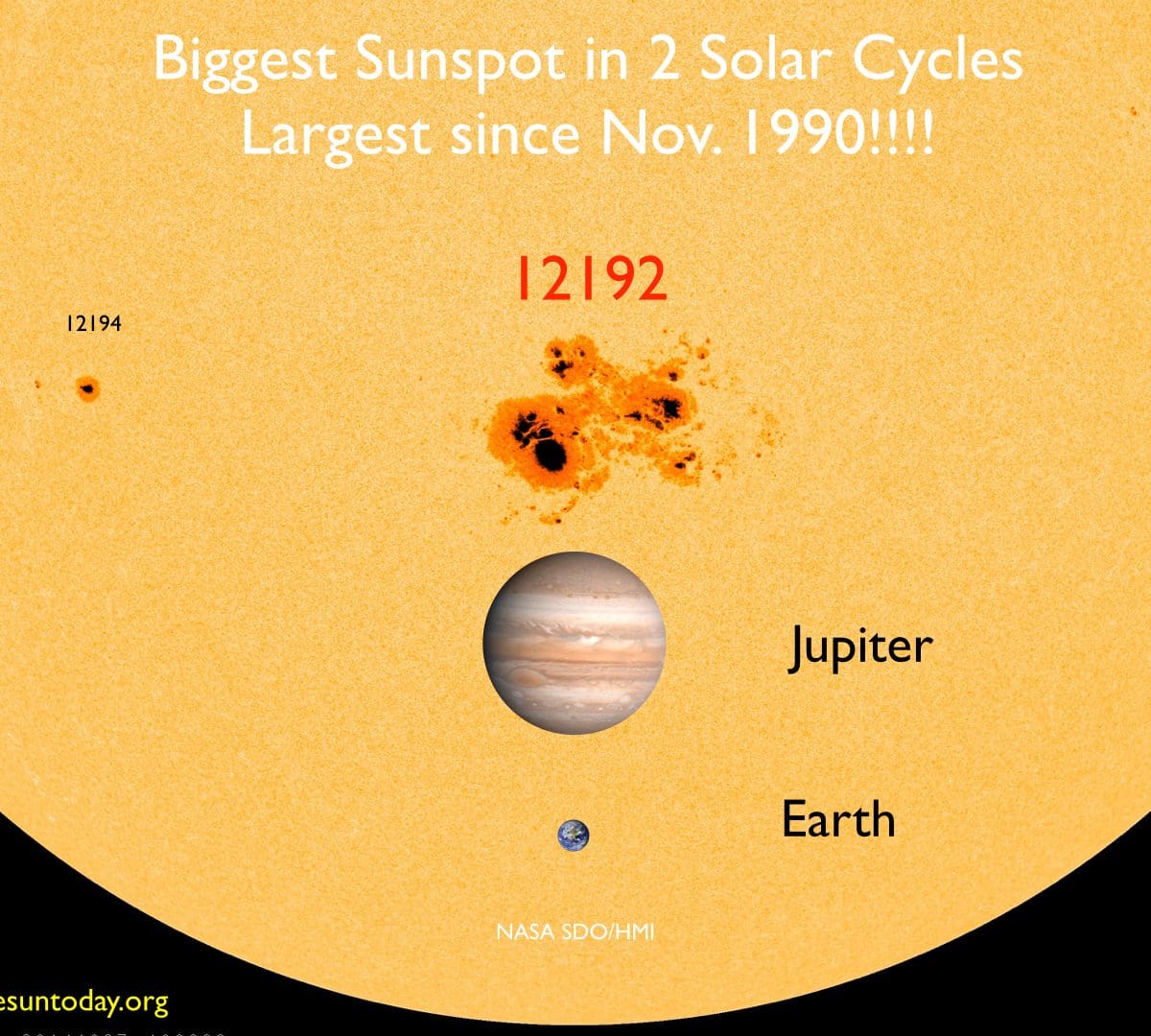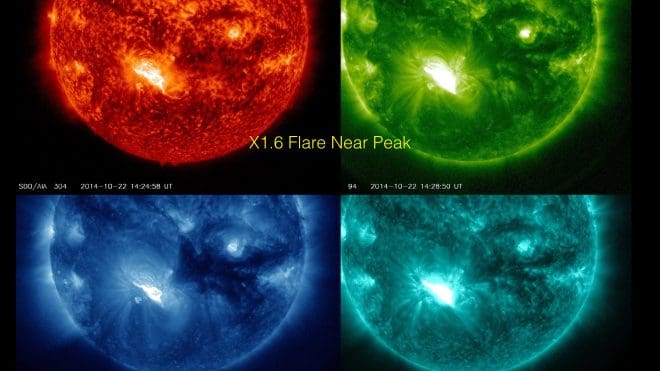
X1.6 solar flare near its peak – shown in 4 SDO/AIA wavelengths.
14:28 UT – Flare peaked in GOES X-rays at X1.6
14:17 UT – The flare is still in progress but at the X1.4 level. NOAA/SWPC issued a R3 (out of 5) radio blackout (Wide area blackout of HF (high frequency) radio communication for about an hour.) due to the solar flare impact on the ionosphere. Area of impact consists of large portions of the sunlit side of Earth, strongest at the sub-solar point.
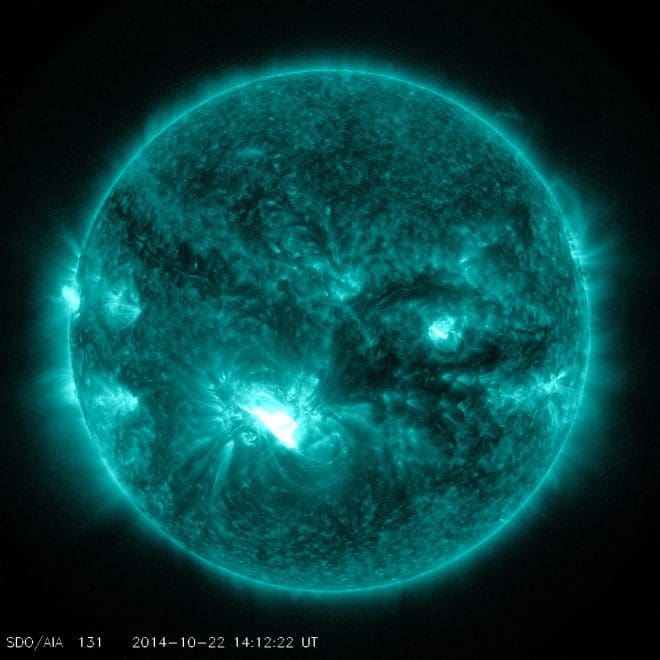
The X-flare from AR12192 not yet at its peak in the SDO/AIA 131 extreme ultraviolet wavelength channel. credit: NASA/SDO
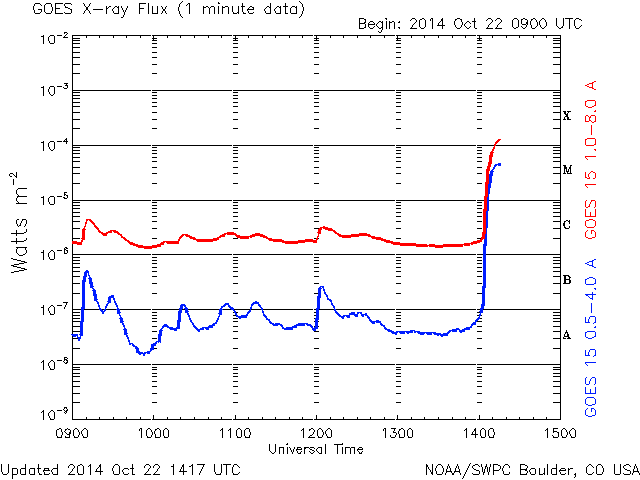
GOES X-ray 1-minute data showing the X-class flare in progress. credit: NOAA/GOES

D Region Absorption of the ionosphere impacted by the solar flare in progress. A R3 radio blackout alert was issued by NOAA. credit: NOAA/SWPC
